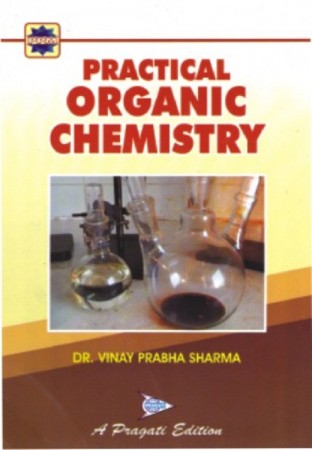
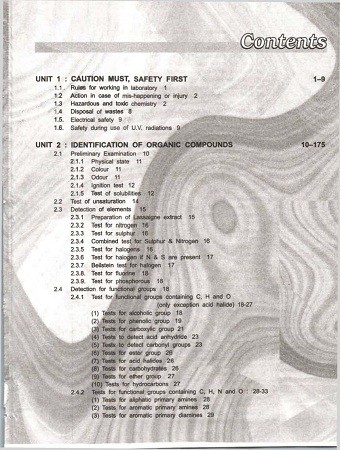
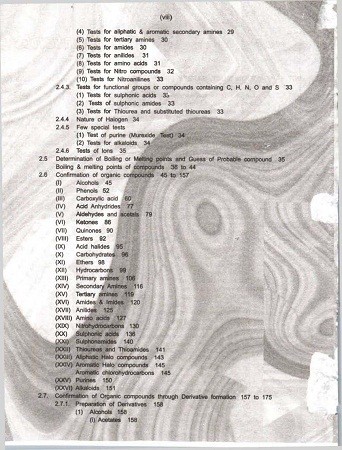
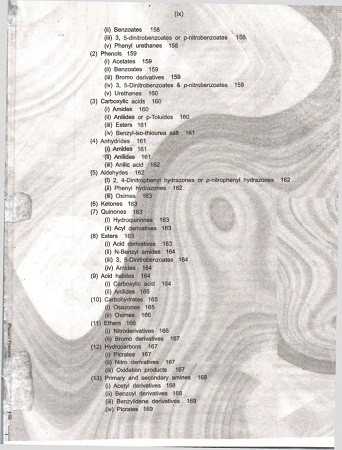
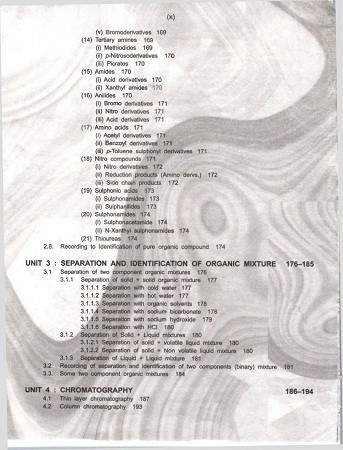
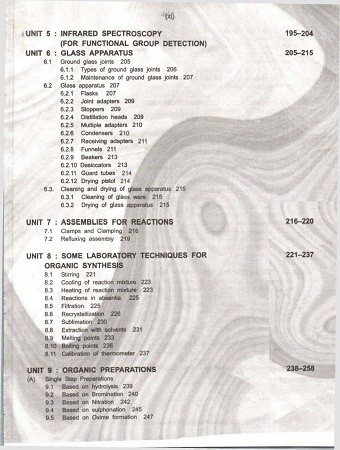






0 Reviews
1343 Views
Theory is the basic behind life, but actual life comes into existence through practical exercises. In other words materialistic world is the manifest .... Read More
Theory is the basic behind life, but actual life comes into existence through practical exercises. In other words materialistic world is the manifestation of bringing the thought into working. This is true for scientific world as well. Chemistry is the branch of science which is based on living as well as non-living world and is used in almost all areas of human utility. Experimentation in Organic chemistry is essential for the true growth and development of human civilization. This book is written keeping in view basics of practical organic chemistry. In this book stress is given to present experiments to be carried out in organic chemistry in simplified way. Contents of the book deal with requirements of M. Sc. (Prev.) syllabi of various Indian Universities. Safety in organic chemistry laboratory is most essential. Therefore, book has been started with an introduction and emphasis on safety measures (Unit-I). Organic compounds and their mixtures are surrounding us in different ways, e.g., they are in animal and plant bodies. Man is curious to separate and analyse them because of his investigating nature and ability to use them for research and development. Keeping this aspect in mind Qualitative Organic Analysis (Unit-2) and Separation & Identification of Organic Mixtures (Unit-3) are written. Mixture of compounds can be analysed and separated through thin layer chromatography (TLC) and column chromatography. Therefore, separate unit (Unit-4) provides an introduction to this technique. Spectroscopic techniques are helpful in identification of organic compounds as quick & highly reliable techniques with the additional advantage that very little amount of compound is needed for them. Infra Red (IR) spectroscopy (Unit-5) has been discussed for the purpose of identification of functional groups in organic compounds. Organic chemistry experiments can not be carried out without glass apparatus which are used to set up reaction assemblies. Therefore, both of them have been discussed (Unit-6 and Unit-7). New organic materials can be synthesised from simple to complex organic compounds, which are used in various fields. Some organic preparations constitute the matter of discussion of Unit-9 and Unit-10. However, various techniques used during organic preparations and discussed in Unit-8. Quantitative Organic Analysis is in the last unit (Unit-11). For the ease of students sample questions for self assessment are given at last. Hope, this book will prove to be helpful to those students who are g interested in learning organic chemistry techniques.
| Sr | Chapter Name | No Of Page |
|---|---|---|
| 1 | Caution Must, Safety First | 9 |
| 2 | Identification of Organic Compounds | 166 |
| 3 | Separation and Identification of Organic Mixture | 10 |
| 4 | Chromatography | 9 |
| 5 | Infrared Spectroscopy (For Functional Group Detection) | 10 |
| 6 | Glass Apparatus | 11 |
| 7 | Assemblies for Reactions | 5 |
| 8 | Some Laboratory Techniques for Organic Synthesis | 17 |
| 9 | Organic Preparations | 21 |
| 10 | Some More Organic Preparations (UGC-Syllabus) | 10 |
| 11 | Quantitative Analysis | 10 |